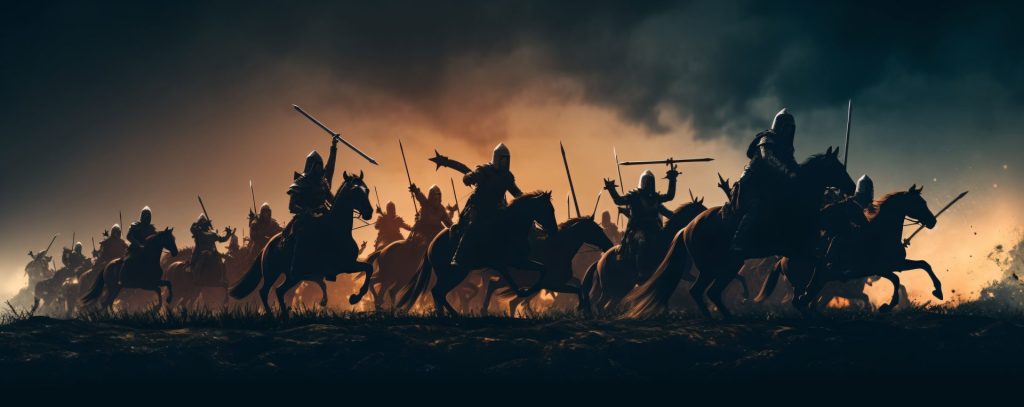Introduction:
This blog is going to talk about Mu’awiyah ibn abi Sufyyan’s political career. Mu’awiyah ibn abi Suffyyan was born in makkah. This was five years before the first revelation. Therefore he was thirty-five years younger than prophet mohammad. His father abu Sufyyan belonged to the Umayyad tribe. He was one of the greatest enemies to prophet mohammad and islam. abu Sufyyan was one of the elite of makkah who always plotted against islam. Mu’awiyah and his father were merchants. They didn’t embrace islam till the conquest of Makkah. After that, Mu’awiyah converted to islam and became a good muslim. he became one of the few muslims who wrote down the holy Quran .
Mu'awiyah rising to power:
After the prophet’s death, Mu’awawiyah became a governor of a lot of places. He worked especially in Syria. He established himself as a great leader and politician there. Mu’awiyah got into a political conflict with ali ibn abi talib, which he eventually won. He established himself as a ruler in syria. At last, Mu’awiyah established the Umayyad dynasty in Syria. He moved the political capital from al-madinah and Cofah to damascus. Muawiyah put an end to the caliphate regime of ruling. The Muslim political system became hierarchical. Moreover, Mu’awiyah ibn abi sufyyan managed to put an end to the political unrest within the muslim state. In addition, he continued the Islamic wars of conquest. He managed to spread islam in Asia and Africa. ibn abi sufyyan
Mu'awiyah’ wars in africa:
In North Africa, Muslims conducted raids as far west as Tlemcen in present-day Algeria. More permanent, however, was the conquest of Tripolitania and Ifrīqiyyah, which consolidated the foundation in 670 of the garrison city of Kairouan. It soon to become the base for further expansion later in the Umayyad period. At the same time, Muslims conducted a vigorous campaign in the east. Muslim borders extended to the Oxus River (modern Amu Darya) and Khorāsān was established as an Umayyad province. the rule of Mu’awiyah ibn abi Sufyyan seemed as a natural development of the way to rule the islamic state after the first generation of islam.

Mu'awiyah’s (modern) Muslim state:
To solve this problem, Mu’awiyah ibn abi Sufyyan resorted to a solution that lay at hand in Syria. that is, the imitation of administrative procedures that had evolved during centuries of Roman and Byzantine rule there. the process by which the borrowing took place is not fully known. It is clear that Mu’awiyah initiated certain practices that were apparently inspired by the previous tradition. Basically, he aimed at increased organization and centralization of the caliphal government. This was in order to exert control over steadily expanding territories. This he achieved by the establishment of bureaus. (dīwāns) in Damascus. He aimed to conduct the affairs of government efficiently.
Mu'awiyah’s government officials:
Prominent positions within the nascent bureaucracy were held by Christians, some of whom belonged to families that had served in Byzantine governments. The employment of Christians was part of a broader policy of religious tolerance that was necessitated by the presence of large Christian populations in the conquered provinces, especially in Syria itself. Such administrative innovations coupled with the observance of tribal traditions caused historians of a later period to deny Mu’awiyah the religious title of caliph and to characterize him as a king (malik) instead. As a symbol of the increasingly secular nature of the caliphate, derived in part from a non-Islamic tradition, the title is apt for Mu’awiyah and for most of the Umayyads.
Mu'awiyah building up an empire:
It is particularly appropriate for the most startling of all of Mu’awiyah’s innovations, the one by which he secured the allegiance of the tribes for the caliphate of his son Yazīd and thereby established the practice of hereditary rule in Islam. As an alternative to the various unreliable precedents for selecting a caliph, this measure was certainly consonant with Mu’awiyah’s policy and achievement as caliph, which, in summary, consisted of invigorating the theocratic origins of Islamic governance with borrowings from other traditions better adapted to the demands of tribesmen and the needs of an empire. Mu’awiyah stands out as one of the few caliphs who is depicted both in Muslim historiography and in modern scholarship as a decisive force in Islamic history.
